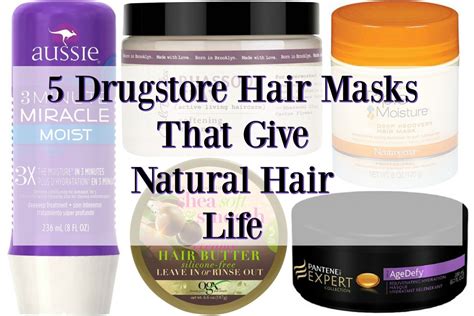Introduction: The Power of Natural Hair Masks
According to the American Academy of Dermatology, over 50% of women struggle with hair problems such as dryness, damage, and thinning. Natural hair masks offer a safe and effective solution to these common concerns, harnessing the nourishing and restorative properties of plant-based ingredients.

Benefits of Natural Hair Masks
- Nourish and hydrate dry strands
- Repair damaged hair cuticles
- Promote hair growth and reduce hair fall
- Reduce scalp inflammation and dandruff
- Enhance hair shine and smoothness
10 Essential Ingredients for Natural Hair Masks
- Avocado: Rich in fatty acids, vitamins, and minerals for deep conditioning
- Coconut Oil: Penetrates the hair shaft to moisturize and reduce breakage
- Honey: Antibacterial, antifungal, and humectant properties for scalp health and hair hydration
- Argan Oil: High in antioxidants and fatty acids for hair repair and protection
- Aloe Vera: Cooling and moisturizing, soothes scalp irritation and promotes hair growth
- Banana: Contains potassium, vitamins, and antioxidants for hydration and damage repair
- Yogurt: Rich in protein, calcium, and lactic acid for hair strengthening and scalp exfoliation
- Eggs: Protein-packed for hair repair and follicle stimulation
- Olive Oil: Emollient and antioxidant properties for hair conditioning and protection
- Apple Cider Vinegar: Balances scalp pH, removes product buildup, and promotes hair growth
Types of Natural Hair Masks for Specific Hair Concerns
Dry and Damaged Hair
- Avocado and Coconut Oil Mask: Mash 1 ripe avocado with 2 tbsp coconut oil. Apply to hair and leave on for 30 minutes before rinsing.
- Honey and Banana Mask: Blend 1 banana with 2 tbsp honey until smooth. Massage into hair and cover with a shower cap for 1 hour.
Thinning Hair
- Argan Oil and Egg Mask: Whisk 1 egg with 2 tbsp argan oil. Apply to scalp and hair, massaging gently. Leave on for 20-30 minutes before shampooing.
- Aloe Vera and Yogurt Mask: Combine 1 cup aloe vera gel with 1 cup plain yogurt. Apply to hair and scalp, leaving on for 30 minutes before rinsing.
Scalp Problems
- Olive Oil and Honey Mask: Mix 2 tbsp olive oil with 1 tbsp honey. Apply to scalp and massage for 5 minutes. Leave on for 30 minutes before shampooing.
- Apple Cider Vinegar and Water Rinse: Dilute 1 cup apple cider vinegar in 2 cups water. After shampooing, pour over scalp and hair, massaging gently. Rinse with cold water.
How to Use Natural Hair Masks
- Wash hair with a gentle shampoo before applying the mask.
- Apply the mask evenly to damp hair, avoiding the scalp unless the recipe specifies otherwise.
- Cover hair with a shower cap or plastic wrap to enhance absorption.
- Leave the mask on for the recommended time, typically 20-60 minutes.
- Rinse thoroughly with lukewarm water and style as usual.
Tips for Using Natural Hair Masks
- Use fresh, ripe ingredients for optimal efficacy.
- Test a small patch of skin before using a new mask to check for allergies.
- Frequency of use depends on hair type and condition; once a week for dry or damaged hair, once every 2-3 weeks for normal hair.
- Store leftover mask in the refrigerator for up to 3 days.
Precautions
- Avoid using harsh chemicals or heat while wearing a hair mask.
- Do not leave masks on for excessively long periods, as this can irritate the scalp.
- Rinse thoroughly to prevent hair from becoming greasy or weighed down.
Conclusion
Natural hair masks offer a wide range of benefits for hair health and beauty. By utilizing these nourishing plant-based ingredients, you can restore your hair’s vitality, shine, and fullness. Embrace the power of nature to achieve your hair goals and unlock your most radiant tresses.
